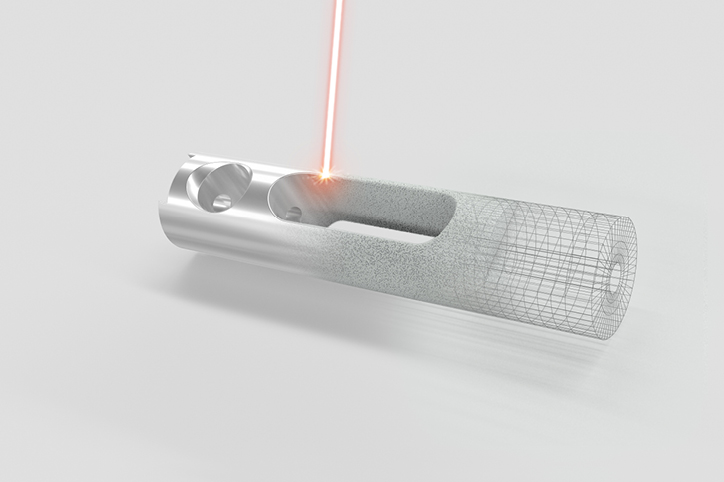In times when the responsible use of resources determines our everyday life, new technologies for the efficient processing and production of various components become indispensable. Additive manufacturing processes offer a wide range of application possibilities in which the advantages of the technology can be optimally utilised.
The weight reduction of components or geometries that could not be produced before, but also materials and alloys that can only be produced in a very complex and cost-intensive way using conventional processes such as casting, can be realised economically using additive manufacturing. One of the main advantages of the technology is the freedom of design. Since one no longer has to accept restrictions already during the design phase due to the manufacturability by means of „conventional manufacturing processes“, many different potentials are offered.
Components made of platinum and platinum alloys
Components are parts that function as individual parts in a technical complex (e.g. machines or appliances) or are used for decorative applications. Very often, the components have to fulfil certain requirements. Depending on the requirements, the selection of a suitable material is essential.
The use of platinum is usually indispensable for various applications. In medical technology, for example, electrodes are made of platinum to deliver current to surrounding tissue. Flow measurement technology always uses platinum when the media to be measured have a high chemical aggressiveness. The coefficient of thermal expansion may also require the use of platinum in various material pairings of an assembly. Whenever a higher strength of the material is desired, iridium is added. Thus, platinum and platinum-iridium components exhibit properties such as high chemical resistance, biocompatibility, comparatively high strength and electrical conductivity.
The advantages of platinum-iridium in additive manufacturing
Considering the previously mentioned advantages of the technology
Material efficiency
Design freedom
Production of complex parts
one quickly realises that these are particularly effective in the area of precious metals and especially in the area of platinum group metals (PGM). Complex casting processes with high input quantities for the production of semi-finished products are inefficient in combination with high costs for the reprocessing of the waste.
Additive manufacturing of platinum-iridium components can minimise the amount of material used in production many times over. During further processing, if this is necessary at all, the waste quantities and the processing times can be reduced by designing the semi-finished products close to the final shape.
The very fine-grained microstructures resulting from the process are often a further advantage for very small components, e.g. for medical technology. Micro-machining can be positively influenced by this.
The development of components according to individual requirements
Since we at C.HAFNER have many years of experience with additive manufacturing by laser melting in combination with conventional machining and have already implemented a wide range of component manufacturing projects in close cooperation with our customers, we advise product developers to take the possibilities of additive manufacturing into account already during the development and design of components. Only then can the advantages of the modern technology described above be fully exploited. It is also important to select a component manufacturer who can provide advice right from the development stage.
